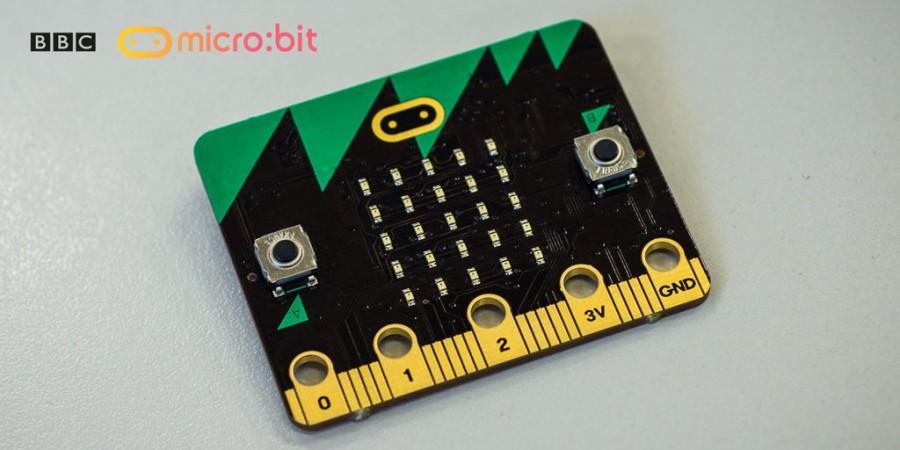
Being able to use computers has become a necessity, and with computers and connected devices becoming a part of our daily lives, being able to program a computer will become as important a skill as operating one. The BBC, having reportedly identified this, will be giving away 1 million micro:bit computers to 7th-graders across the UK.
The micro:bit — the result of a collaboration between 29 organisations — is a little codeable computer children can program using a variety of languages. The device measures 4cm x 5cm, has two physical buttons, a 5x5 LED matrix that functions as a display, a microUSB connector, an accelerometer, a compass, Bluetooth, five input/output rings, and an edge connector, all powered by an external battery pack.
Children can write their code at microbit.co.uk and transfer them to the micro:bit device via USB. The device can also be programmed using a smartphone or a tablet and the code transferred via Bluetooth.
The computer will be powered by AAA batteries or via USB. The USB connector will also allow children to connect their micro:bits to smartphones, tablets and even computers like the Raspberry Pi. The micro:bit can either be controlled by or be used to control the devices they are connected to and can even connect to the Internet via the device they are tethered to.
The micro:bit follows the legacy of the Micro the BBC launched back in the 1980s. The Micro was a series of microcomputers the BBC launched to promote computer literacy. The BBC Micro eventually wound up in 80 percent of the U.K.'s schools and was used to teach children BBC BASIC — a version of the programming language adapted by the BBC. According to BT, not only did the Micro inspire a generation of developers who would eventually found companies like Songkick, Wolfram Research, but also gaming companies like Codemasters.
Computerhistory.org credits the Micro for helping establish the U.K. gaming industry, as the computer was often used to create games for personal use.
The BBC Micro reportedly started a revolution and the BBC expects to do the same the micro:bit.
"The BBC Micro Bit is all about young people learning to express themselves digitally, [sic]" said Sinead Rocks, head of BBC Learning, in a BBC report. "As the Micro Bit is able to connect to everything from mobile phones to plant pots and Raspberry Pis, this could be for the Internet-of-Things what the BBC Micro was to the British gaming industry. [sic]"
In an announcement, Rocks said children had already developed new ideas as the device was being tested, and teachers had also embraced the micro:bit and made valuable contributions to the available online resources.
According to the BBC, the U.K. is going through a major skills shortage in the technology sector. In an interview with Wired, David Braben, founder of Frontier Developments and co-creator of the bestselling BBC game Elite, and Hermann Hauser, co-founder of Acorn, the company that built the Micro, attributed the downfall of the U.K.'s tech industry to changes in the curriculum. But, the fact that every school in the U.K. can sign up and receive micro:bits, making it a part of the yearly curriculum, is expected to change that.
While the Micro's success at inspiring a generation of programmers can be attributed to the fact that the microcomputer was owned by schools, the micro:bit will belong to children receiving them. This makes one wonder about children currently in the 6th grade. It also makes one wonder whether children in the 8th grade and above will be completely excluded. Also, if the programme is continued next year and receives an upgrade, what will happen to the device currently being distributed?
According to the BBC, it wants to spark an interest in the market for entry-level coding devices. By making the device's specifications open source, it expects others to develop their own versions of the micro:bit, come up with compatible accessories and help the ecosystem grow.
PC Advisor reports the BBC micro:bit will be available for sale to anyone interested in the near future.














